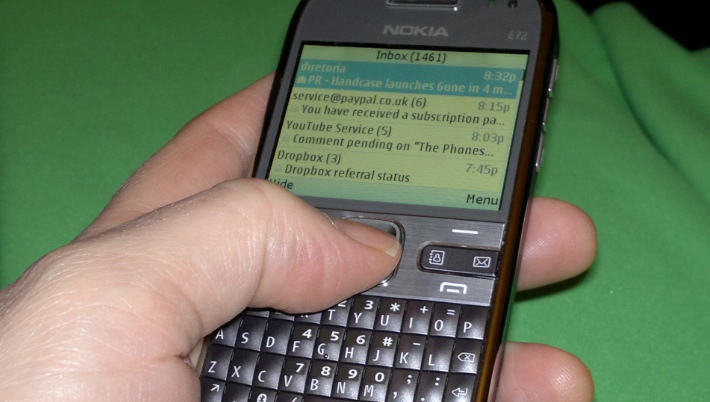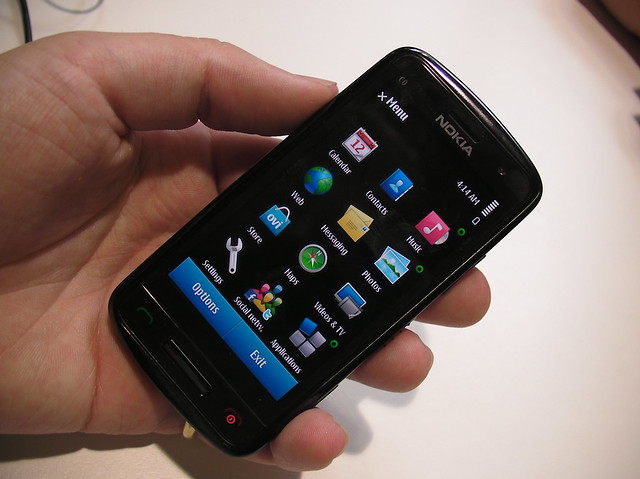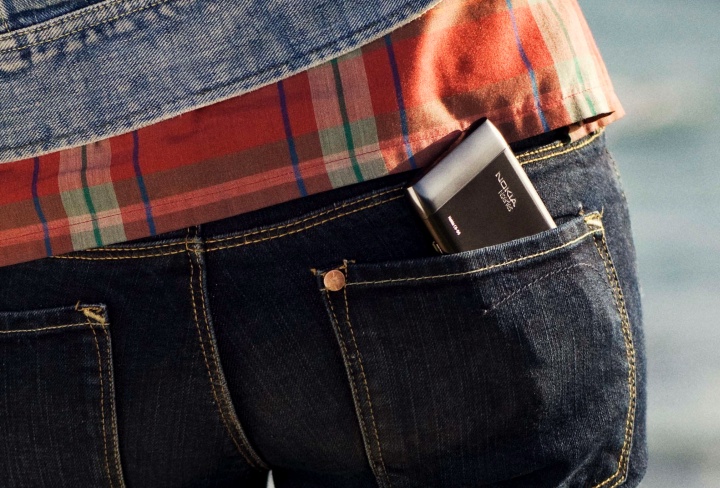
Briefly though, the story so far:
In Defining the Smartphone - part 1, I looked at many of the popular definitions of 'smartphone', before ending up with my own hybrid definition: "A smartphone runs an open (to new apps) operating system and is permanently connected to the Internet."
In my much-quoted (thanks for all the links!) When is a smartphone not a smartphone? When it's a converged device!, I pointed out the huge gulf in expectations for a 'smartphone' on the two side of the Atlantic Ocean. In the USA, a smartphone is essentially a mobile Internet and connected apps platform, whereas Nokia's vision for its Symbian smartphones is as a hugely converged device, with (for example) audio, optics, navigation and general robustness taking priority, to replace other discrete devices in your pockets, with Internet functionality taking second place.
Finally, in The Smartphone's Place in the Mobile Spectrum, I went further, dividing the mobile world into four broad categories: phones, smartphones, superphones and tablets. Looking at battery life, robustness and cost, I then showed how these core attributes changed dramatically for the different categories - truly one size (and set of desire attributes) really doesn't 'fit all'.
Although my opinions were expressed in some detail in the three features above (all of which I still stand by), I'd like to add one really, simple, blindingly obvious observation. At least, it's obvious once it's pointed out. I started with trying to define the word 'smartphone' and everything flowed from that. A more telling question is whether it's one word or two.
You see, a lot of what I've said in these features can be summed up in a single 'sound bite' quote:
There are 'smartphones'. And there are 'smart phones'.
You might want to read that again. The space wasn't a typo.
What got me thinking along these lines was the oft-heard throwaway line in USA podcasts (in particular) that "I hardly ever use voice on my smartphone, it's all data".
With network differences, tariffs and incompatibilities far more important in the fragmented American market, it's only natural that podcasters chat about voice and data contracts and which ones are better bets than others. But the quote above would be completely alien to all but the most hardened geeks over here in Europe. Yes, data use has increased enormously over the last five years. But at heart my smartphone is still, essentially my phone and when someone wants to contact me it's this that rings and it's this that I pick up.

Or ask my wife. Or her friends. Or my (non geek) friends, for that matter. Ask the man in the street. Ask your mum or dad. Ask your son or daughter. Or their friends. In each case, away from the geeky cutting edge, what many people want is a smarter phone, not a smartphone, per se.
I asked a number of the above, who I reckoned were pretty tech-literate and worth talking to (so not my mum or dad then!) and who already owned a 'smartphone' of some kind, what they used their 'phone' for and what they wanted to do on their next upgrade or purchase. Here are the top dozen responses (in approximate order of popularity):
- Phone calls
- Texting
- Calendar
- Playing music
- Bluetoothing ringtones and music to friends
- Taking videos and photos
- Playing games (Tower Blox and Need for Speed got specific mentions)
- Browsing news and travel web sites (can't resist a plug for bookmarking my Web Guide at this point!)*
- Checking email*
- Instant messaging and social (networking) applications*
- Mapping and navigation*
- Playing back FM Radio and Podcasts for spoken word entertainment while doing chores
In addition to pure functions, it also became apparent that size and robustness was important to them in a phone. And yes, everyone I talked to talked about their 'phone', not their smartphone. They wanted all of the above functions in a phone that wasn't too large (or too heavy) and which wasn't going to get scratched easily or fall apart in their pockets or purse.
What's noticeable to me from looking at the list and attributes above is that only four of them (marked with a *) actually need cellular data to a significant degree and indeed for many people even these four only involve hundreds of kilobytes a day at most. Whereas 'smartphones' in the form of the latest tech media darling gadgets (e.g. iPhone 4, Galaxy S, HTC Desire HD) are geared around always-on data, with nearly all data and services firmly based in the cloud, and users are worried (usually erroneously, but.....) about even exceeding a 500MB monthly cap.
Even leaving aside the starred items, all the other functions are now pretty much standard on everything from the lowliest £50 pay-as-you-go mobile upwards. You'll remember I renamed 'The Smartphones Show' to just 'The Phones Show' a couple of years ago? This was in acknowledgement of this trend to ever smarter 'phones'.
What I'm getting at is that there's still a huge market, a huge mass of people who want a 'smart phone'. A phone that does what they need and, yes, can be extended (especially if said phone runs Symbian or similar) with apps or online services where needed, to do any extra 'smart' stuff. It's a far cry from the typical 'smartphone' by US definitions (see above), usually a 3.7", 4" or 4.3"-screened touch slab driven by Android.
As ever, and as I've emphasised in each of these features, there's plenty of room in the overall phone market for all shapes and sizes, for 'smartphones' and 'smart phones'. Most people just don't appreciate just how huge this market is. The 'smartphone'/converged market (i.e. devices with open mobile OS), even with recent explosive growth, is still only a quarter the size of the overall phone market, at least considered worldwide. Even in the most tech-heavy areas in the world (e.g. London, San Francisco), the phone market still isn't saturated with smartphones.
Or even smart phones. Different devices for different folks as they all gradually (over the next ten years and as the data capacity and reach of networks improves across the world) upgrade from (literal) dumbphones to one variety of smart - or another.
Steve Litchfield, AAS, 29 Jan 2011

